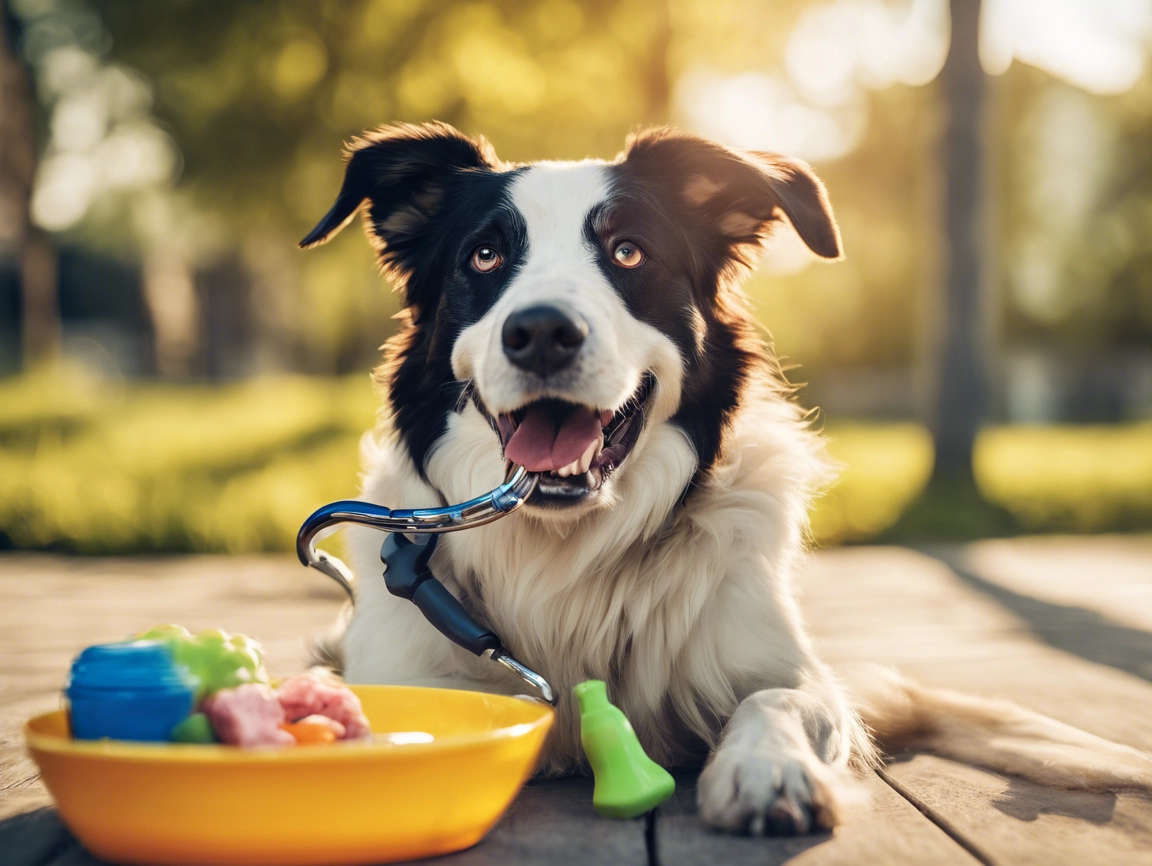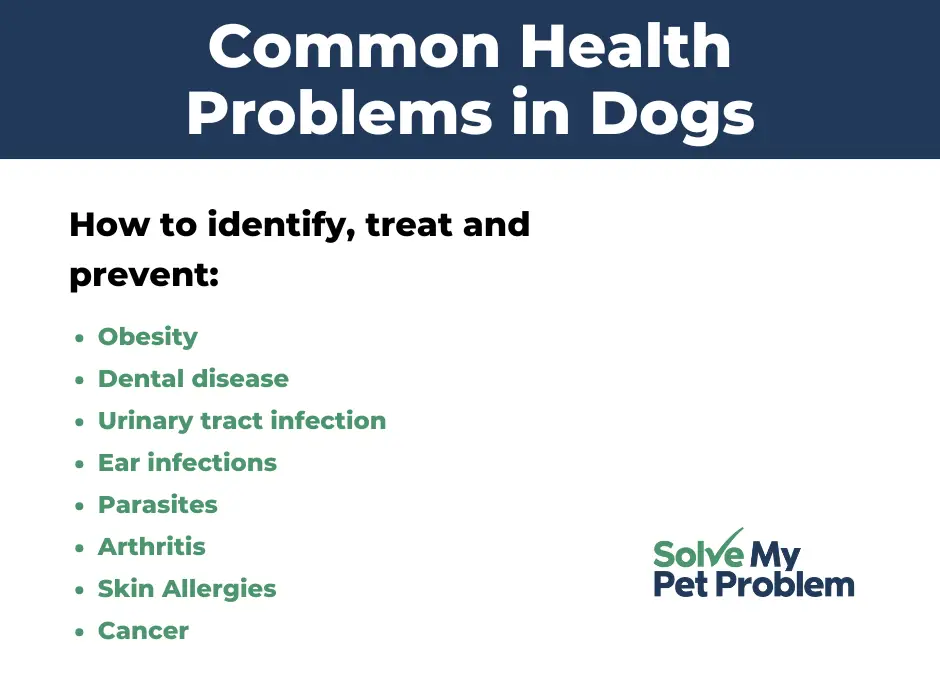Share via:
Common Health Problems in Dogs
- Summary
- Deep Dive
- FAQs

-
-
-
Summary
Dogs can experience various health issues throughout their lives. Common problems include obesity, which can lead to joint pain and heart disease; dental disease, which causes bad breath and gum infections; ear infections, particularly in floppy-eared breeds; and parasites like fleas and ticks. Other concerns include arthritis in aging dogs, skin allergies, urinary tract infections, cancer, diabetes, and bloat. Preventive care such as a balanced diet, regular exercise, and vet check-ups can help manage or prevent these conditions. Early detection and treatment are crucial to keeping dogs healthy and happy.
Keep reading for a deeper dive and FAQs.
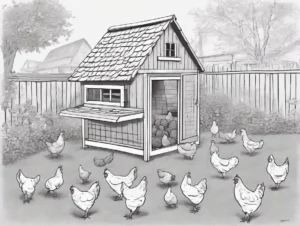
Dogs are often called “man’s best friend” for a reason—they are loyal, loving, and fun companions. But just like humans, dogs can get sick or experience health problems throughout their lives.
Knowing the most common health issues in dogs can help dog owners recognize when their pets are not feeling well and take the right steps to keep them healthy. Below, we’ll explore some of the most common health problems in dogs, their symptoms, and how they can be treated or prevented.
1. Obesity
One of the most common health problems in dogs is obesity. Dogs that are overweight are at risk for other health problems, including joint pain, diabetes, and heart disease. Obesity often happens when dogs eat too much food or get too little exercise.
Symptoms:
- Weight gain
- Difficulty moving or exercising
- Fatigue
Prevention and Treatment:
To prevent obesity, make sure your dog eats a balanced diet and gets enough exercise every day. If your dog is overweight, talk to your veterinarian about how to help your dog lose weight safely. They might recommend switching to a special dog food or adjusting portion sizes.
2. Dental Disease
Many people don’t think about their dog’s teeth, but dental disease is a very common issue. Plaque and tartar can build up on a dog’s teeth, leading to bad breath, gum infections, and even tooth loss.
Symptoms:
- Bad breath
- Red or swollen gums
- Difficulty chewing
- Loose or missing teeth
Prevention and Treatment:
Brush your dog’s teeth regularly with toothpaste made for dogs. Chewing on dental treats or toys can also help keep their teeth clean. If your dog has a lot of plaque or tartar, your veterinarian might need to perform a professional cleaning.
3. Ear Infections
Dogs with floppy ears, like Cocker Spaniels or Basset Hounds, are especially prone to ear infections. These infections are often caused by bacteria, yeast, or allergies.
Symptoms:
- Scratching at the ears
- Redness or swelling in the ear
- A bad smell coming from the ear
- Shaking their head
Prevention and Treatment:
To prevent ear infections, clean your dog’s ears regularly with a vet-approved ear cleaner. If your dog develops an infection, your veterinarian may prescribe ear drops or other medication.
4. Parasites
Parasites, such as fleas, ticks, and worms, are a common problem for dogs. These tiny creatures can cause a variety of health issues, from itchy skin to serious illnesses.
Fleas and Ticks Symptoms:
- Scratching or biting at the skin
- Red or irritated skin
- Small black specks (flea dirt) on the coat
Worms Symptoms:
- A bloated stomach
- Weight loss
- Diarrhea
- Scooting (dragging their bottom on the ground)
Prevention and Treatment:
Keep your dog on a regular flea, tick, and heartworm prevention program. Your veterinarian can recommend the best products for your dog. If your dog already has parasites, they may need medication to get rid of them.
5. Arthritis
As dogs age, they can develop arthritis, which is a condition that causes joint pain and stiffness. Larger breeds like German Shepherds and Labrador Retrievers are more likely to experience arthritis, but it can happen to any dog.
Symptoms:
- Limping or favoring one leg
- Difficulty getting up or lying down
- Less interest in exercise or play
- Stiffness, especially in the morning
Prevention and Treatment:
While you can’t always prevent arthritis, keeping your dog at a healthy weight and giving them regular exercise can help. Your veterinarian might also suggest supplements, pain medications, or special diets to manage arthritis symptoms.
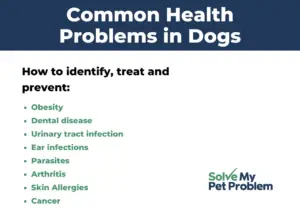
-
-
-
6. Skin Allergies

Dogs can have allergies just like humans. These allergies might be caused by food, pollen, dust mites, or even flea bites. Allergies often show up as skin problems.
Symptoms:
- Itchy skin
- Red or inflamed skin
- Excessive licking or chewing
- Hair loss in certain areas
Prevention and Treatment:
If you think your dog has allergies, talk to your veterinarian. They might recommend special shampoos, medications, or a change in diet to reduce symptoms. Keeping your dog clean and flea-free can also help prevent skin problems.
7. Urinary Tract Infections (UTIs)
UTIs are common in dogs, especially in female dogs. These infections can be uncomfortable and cause problems if left untreated.
Symptoms:
-
Frequent urination
-
Straining to urinate
-
Blood in the urine
-
Accidents in the house
Prevention and Treatment:
Make sure your dog always has access to clean water and goes outside to urinate regularly. If you suspect a UTI, take your dog to the veterinarian. They might prescribe antibiotics to treat the infection.
8. Cancer
Cancer is one of the leading causes of death in older dogs. There are many types of cancer that can affect dogs, including skin cancer, bone cancer, and lymphoma.
Symptoms:
-
Lumps or bumps under the skin
-
Unexplained weight loss
-
Lethargy
-
Changes in appetite
Prevention and Treatment:
While you can’t always prevent cancer, regular check-ups with your veterinarian can help catch it early. Treatment options may include surgery, chemotherapy, or radiation.
9. Diabetes
Diabetes happens when a dog’s body cannot properly regulate blood sugar levels. This condition is more common in overweight or older dogs.
Symptoms:
-
Increased thirst and urination
-
Weight loss despite a good appetite
-
Fatigue
Prevention and Treatment:
To help prevent diabetes, keep your dog at a healthy weight and feed them a balanced diet. If your dog is diagnosed with diabetes, they may need daily insulin injections and a special diet.
10. Bloat (Gastric Dilatation-Volvulus)
Bloat is a serious and life-threatening condition that happens when a dog’s stomach fills with gas and twists. This is most common in large, deep-chested breeds like Great Danes and Boxers.
Symptoms:
-
A swollen or hard stomach
-
Restlessness or pacing
-
Drooling
-
Vomiting without bringing anything up
Prevention and Treatment:
To lower the risk of bloat, feed your dog smaller meals throughout the day instead of one large meal. Avoid letting them exercise right after eating. If you notice signs of bloat, take your dog to the veterinarian immediately—it’s an emergency.
Final Thoughts
Taking care of a dog means more than just providing food and shelter. Paying attention to your dog’s behavior and physical health can help you catch problems early and keep them healthy for years to come. Regular vet check-ups, a good diet, and plenty of exercise are the keys to a happy and healthy dog. If you ever notice something unusual about your dog, don’t hesitate to contact your veterinarian. After all, a healthy dog is a happy dog!

-
-
-
Frequently Asked Questions
Common Health Problems in Dogs FAQs
Q: What are some of the most prevalent health issues that affect dogs?
A: Dogs, like humans, can experience a variety of health problems. Some of the most common issues include obesity, dental disease, ear infections, parasites, arthritis, skin allergies, urinary tract infections, cancer, diabetes, and a condition called bloat.
Q: What are the signs of dental disease in dogs, and how can I prevent it?
A: Dental disease is a frequent problem for dogs, often characterized by the accumulation of plaque and tartar on their teeth. This can lead to unpleasant breath, infections in the gums, and even tooth loss.
You might notice the following signs if your dog has dental disease:
- Bad breath: This is often the first noticeable sign of dental issues.
- Red or swollen gums: Gums affected by inflammation or infection may appear redder and puffier than normal.
- Difficulty chewing: Pain or discomfort from dental problems can make it difficult for dogs to chew their food properly.
- Loose or missing teeth: As dental disease progresses, teeth can become loose and eventually fall out.2
To help prevent dental disease:
- Brush your dog’s teeth regularly: Using toothpaste specifically designed for dogs is important because human toothpaste can be harmful to them.
- Provide dental chews and toys: These can help to naturally scrape away plaque and tartar as your dog chews.
- Schedule professional cleanings: Your veterinarian can perform a thorough dental cleaning under anesthesia if your dog has significant plaque or tartar buildup.2
Q: My dog keeps scratching its ears. Could it be an ear infection? What are other signs of ear infections and how are they treated?
A: Dogs, especially those with floppy ears like Cocker Spaniels and Basset Hounds, are prone to ear infections. These infections can be caused by bacteria, yeast, or allergies.
Besides scratching, common signs of an ear infection include:
- Redness or swelling inside the ear: This is a visual indication of inflammation caused by the infection.
- Foul odor coming from the ear: A distinct, often unpleasant, smell can be a sign of bacterial or yeast overgrowth.
- Head shaking: Dogs may shake their heads frequently in an attempt to relieve discomfort or itching in their ears.3
To treat an ear infection, your veterinarian will likely prescribe:
- Ear drops: These often contain medications to fight infection and reduce inflammation.
- Other medications: Depending on the underlying cause and severity of the infection, your vet might also prescribe oral medications.
- Regular cleaning of your dog’s ears with a veterinarian-approved ear cleaner can help prevent infections.
Q: What can I do to protect my dog from fleas, ticks, and worms?
A: Parasites like fleas, ticks, and worms are common problems for dogs and can lead to various health issues ranging from skin irritation to more severe illnesses.
Here’s how to identify and address these parasites:
- Fleas and Ticks:
- Signs: Look for excessive scratching or biting at the skin, redness and irritation, and small black specks (flea dirt) in their fur.
Prevention: Maintain a regular flea and tick prevention program using products recommended by your veterinarian.
Worms:
Signs: Observe for a bloated stomach, unexplained weight loss, diarrhea, or scooting (dragging their bottom on the ground).
Prevention: Consistent use of heartworm prevention medication is key, and your veterinarian can advise you on the best deworming schedule for your dog.
If your dog is already dealing with parasites, your veterinarian will prescribe the appropriate medication to eliminate them.
Q: What are the symptoms of arthritis in dogs, and how can it be managed?
A: Arthritis, a condition that causes pain and stiffness in the joints, is common in older dogs. Large breeds, like German Shepherds and Labrador Retrievers, are more susceptible, but it can affect any dog.
Watch for these signs that might indicate your dog has arthritis:
- Limping or favoring a leg: This is a common sign of pain or discomfort in a specific joint.
- Difficulty getting up or lying down: Stiffness and pain can make these movements challenging.
- Reduced interest in exercise or play: Dogs with arthritis may be less active due to pain.
- Stiffness, particularly in the morning: Joints often feel stiffer after periods of rest.
While it’s not always possible to prevent arthritis completely, these measures can help manage symptoms:
- Maintain a healthy weight: Excess weight puts added strain on joints.
- Regular exercise: Appropriate exercise helps keep joints mobile.
- Veterinary recommendations: Your veterinarian may suggest joint supplements, pain medication, or a special diet formulated for dogs with arthritis.
Q: How can I tell if my dog has allergies, and what can be done to help?
A: Just like humans, dogs can have allergies, with common triggers being food, pollen, dust mites, or even flea bites. Allergies often manifest as skin problems.
Here are some signs your dog might have allergies:
- Intense itching: This is a hallmark symptom of allergic reactions in dogs.
- Red and inflamed skin: Irritation from scratching and the allergic reaction itself can cause inflammation.
- Excessive licking or chewing: Dogs may lick or chew at irritated areas, worsening the problem.
- Hair loss: Persistent scratching or licking can lead to hair loss in affected areas.
If you suspect allergies, consult your veterinarian. They might recommend:
- Medicated shampoos: These can help soothe and heal irritated skin.
- Medications: Antihistamines or other medications may be necessary to control the allergic reaction.
- Dietary changes: A food allergy might require switching to a special diet.
- Flea control: Preventing flea bites is important, as they can trigger or worsen allergies.
- Keeping your dog clean and free of fleas is essential for preventing skin issues.
Q: What is bloat, and why is it an emergency?
A: Bloat, medically known as Gastric Dilatation-Volvulus (GDV), is a life-threatening condition where the dog’s stomach fills with gas and twists. Large, deep-chested breeds like Great Danes and Boxers are particularly prone to this.
It’s crucial to recognize the signs of bloat and seek immediate veterinary attention:
- Distended, hard abdomen: The stomach appears visibly swollen and firm to the touch.
- Restlessness and pacing: The dog seems uncomfortable and unable to settle.
- Excessive drooling: Increased salivation is a common symptom.
- Unproductive retching: The dog tries to vomit but doesn’t bring anything up.
To minimize the risk of bloat:
- Feed smaller, more frequent meals: Avoid giving one large meal a day.
- Restrict exercise after meals: Don’t allow your dog to run or play vigorously immediately after eating.
Bloat requires immediate surgery, so prompt veterinary care is critical.
These FAQs offer information from the source about common health concerns in dogs, focusing on symptoms, prevention, and treatment. Remember, this information is for general knowledge and should not replace professional veterinary advice. Always consult your veterinarian for any specific health concerns regarding your dog.
You Might Like

Chicken Coop Ventilation – How Much Do You Need?

How to Build a Chicken Coop Door
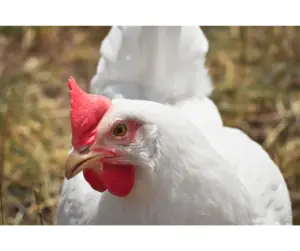
Green Diarrhea in Chickens: What It Means and How to Help
Share via:
